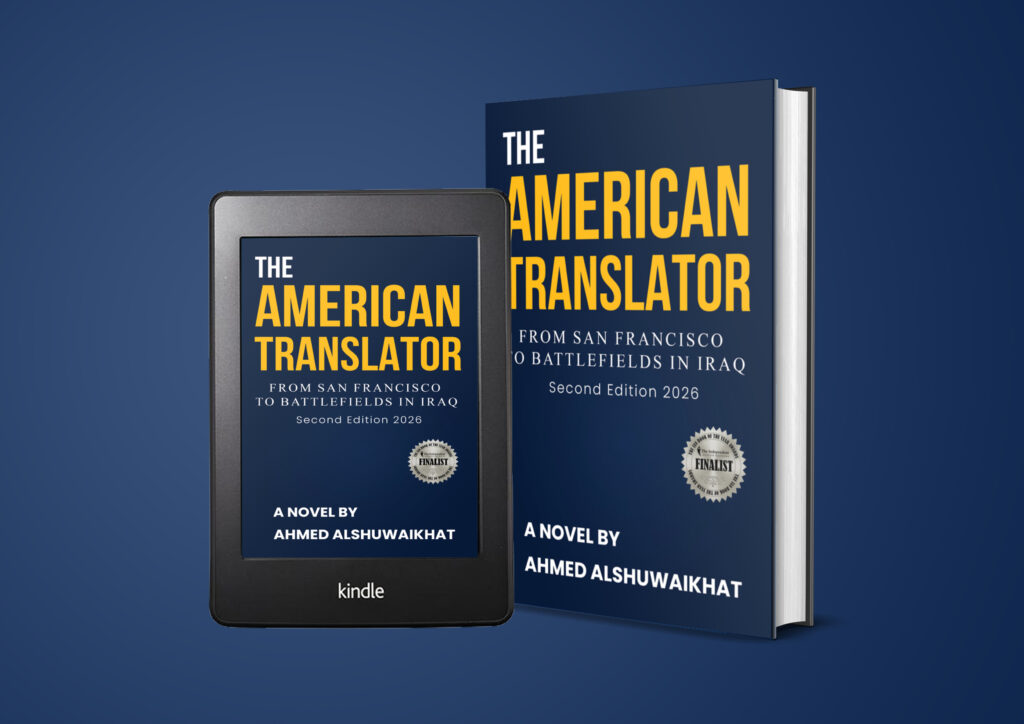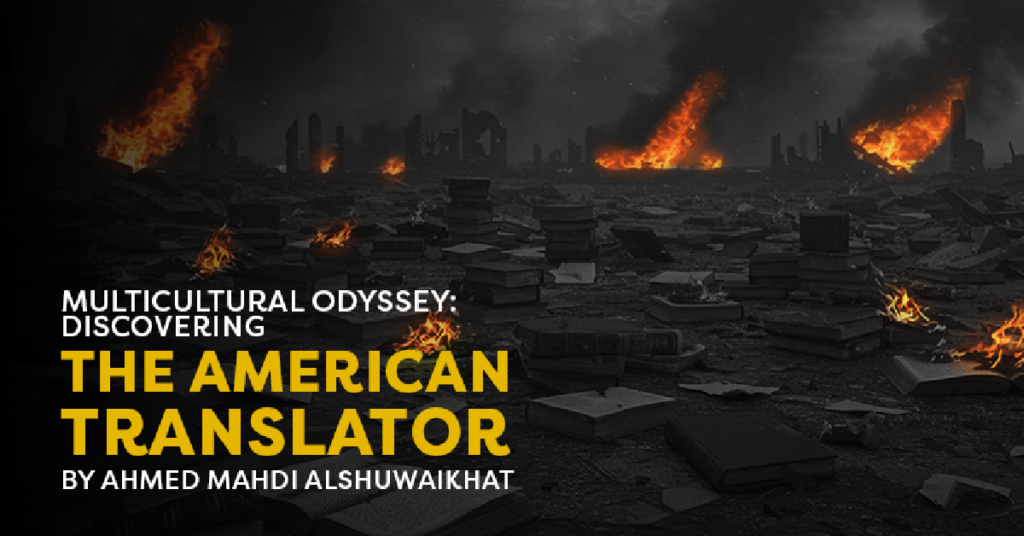In an increasingly interconnected world, literature serves as a bridge that connects diverse cultures and fosters mutual understanding. One such literary masterpiece that embodies the spirit of multiculturalism and exploration is“The American Translator“ by Ahmed Mahdi Alshuwaikhat. Through its captivating narrative, vivid characters, and thought-provoking themes, this novel takes readers on a multicultural odyssey that transcends borders and illuminates the shared humanity that unites us all.

The American Translator: A Journey Through War, Culture, and Identity
At the heart of The American Translator lies the story of David Boccaccio, an eccentric Italian-American whose wanderlust and passion for languages propel him from the bustling streets of San Francisco to the war-torn landscapes of Iraq. As a translator for the American army, Boccaccio is thrust into a world of peril, intrigue, and moral ambiguity—where the lines between friend and foe blur, and the true cost of war is laid bare.
A Deep Exploration of Cultural Identity
What sets The American Translator apart is its profound exploration of cultural identity and the universal quest for meaning. Through Boccaccio’s encounters with soldiers, civilians, and artists from diverse backgrounds, Alshuwaikhat paints a rich tapestry of human experience, illustrating how our lives are interconnected. From the vibrant streets of San Francisco’s Little Italy to the ancient villages of Iraq, the novel offers a window into the cultural kaleidoscope that shapes our world.
More Than an Adventure—A Meditation on Human Nature
Beyond being a gripping tale of adventure and discovery, The American Translator delves into the complexities of human nature and the enduring struggle for peace. As Boccaccio navigates the moral quagmire of war, he grapples with profound questions of loyalty, sacrifice, and the essence of patriotism. Through his eyes, readers are confronted with the stark realities of armed conflict and its lasting impact on individuals and societies alike.
A Story for Our Globalized World
The novel’s exploration of cultural conflict and dialogue feels especially relevant in today’s globalized landscape, where ideological and identity clashes are increasingly prevalent. By weaving elements of mystery, suspense, and social commentary, Alshuwaikhat challenges readers to reflect on their own beliefs and biases. He urges us to adopt a broader, more empathetic perspective—reminding us that true understanding stems from open dialogue and a willingness to bridge divides.
Acclaimed for Its Narrative and Impact
The American Translator has received widespread acclaim from readers and critics for its compelling storytelling, vivid imagery, and timely social themes. Veronica “Waterfall” Adams likens it to action-adventure films filled with mystery, hinting at its potential for cinematic adaptation. Similarly, Damilare Olayiwola hails it as “the next big thing,” echoing the sentiments of countless readers enthralled by its gripping narrative and thought-provoking insights.
A Call to Action for a More Inclusive World
Perhaps the novel’s most powerful endorsement is its message itself—an urgent call to embrace diversity, foster dialogue, and strive for a more peaceful and equitable world. In an era marked by geopolitical tensions and cultural divisions, The American Translator serves as a beacon of hope, reminding us of the universal values that bind us together as human beings.
An Invitation to Discover and Reflect
As readers embark on this multicultural odyssey with David Boccaccio, they are reminded of the beauty and complexity of the world we inhabit. The novel’s gripping narrative and thought-provoking themes invite us to open our hearts and minds to new experiences and perspectives. Ultimately, The American Translator is more than just a novel—it is an invitation to explore, to understand, and to celebrate the rich tapestry of human experience that unites us all.










